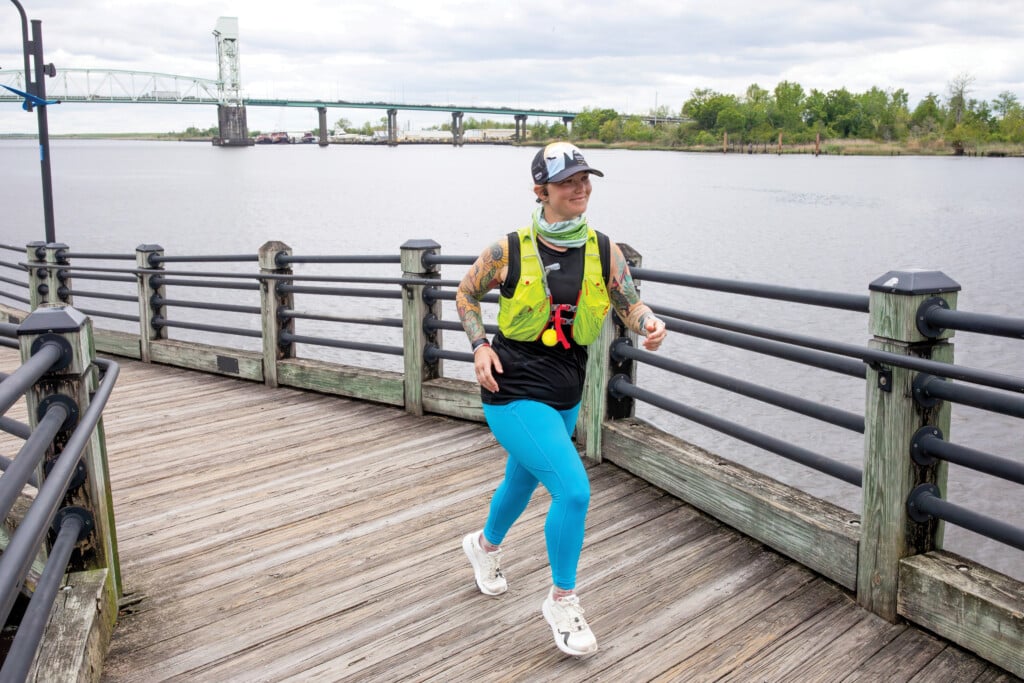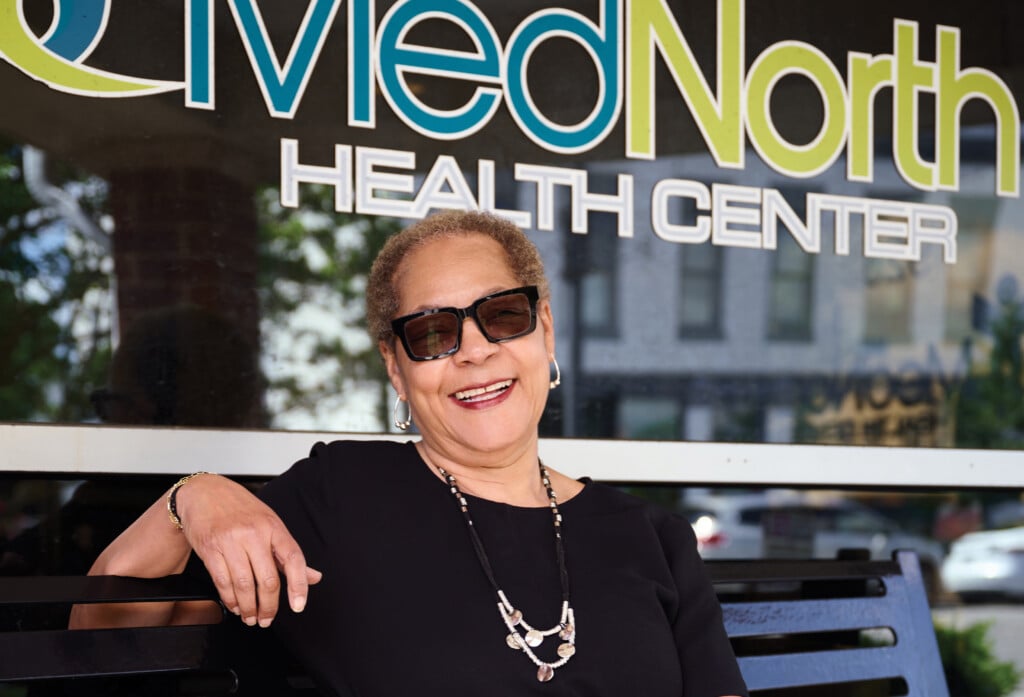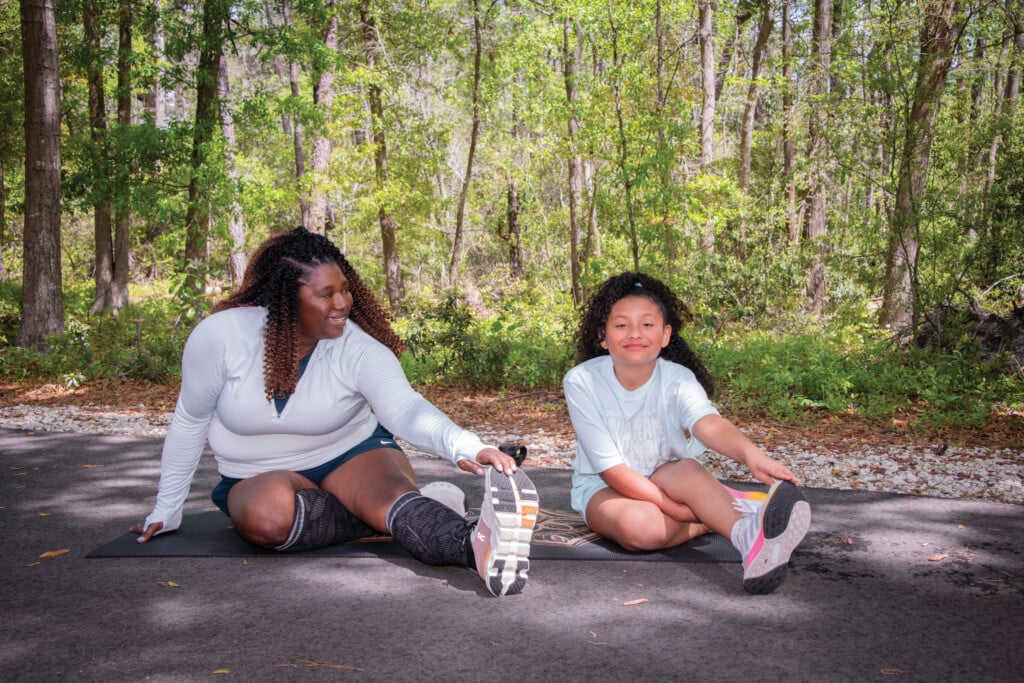Community Health
Closing the health divide
According to the National Institutes of Health, one of America’s greatest challenges is reducing the profound disparity in the health status of its racial and ethnic minority, low income, rural, and other underserved populations.
Indicators of a healthy community are numerous: access to nutritious, affordable food, affordable health care, low infant mortality, affordable housing, and more.
And now COVID-19 is making that divide even sharper.
The University of North Carolina Wilmington Center for Healthy Communities was established in 2013 as an integrating structure between the university and the community to look at root causes of health issues and to improve the quality of life for the underserved.
LEAH MAYO is the coordinator for the center, which is part of the College of Health and Human Services. She understands the complexity and connectivity of health disparities.
“You can’t have good health outcomes if the focus is only on the clinical side. You need a holistic approach – prevention and root cause. To be successful requires working inter-professionally and cross-sectionally. There are lots of moving parts,” Mayo says.
Mayo has been the center’s coordinator for the past three years.
“We are building relationships between the communities across Southeastern North Carolina and the university,” she says.
She spends the majority of her time identifying health issues and finding opportunities to connect faculty, staff, and students who can provide research or fulfill community-identified needs. The center also provides services such as project management, data collection, data evaluation, and facilitation.
Mayo has a team of three.
CIERRA WASHINGTON is a program associate whom Mayo refers to as her “boots on the ground.” Washington is project-focused, currently planning the intentional involvement of students in community agencies and increasing awareness of local health disparities.
MEGAN TOOTHMAN is a project coordinator. She is hyper-focused on identifying the needs of health departments in Bladen, Columbus, and Robeson counties for the North Carolina Medicaid Transformation Program, a legislative decision to transition from fee-for-service to managed care starting July 2021.
Rounding out the team is a public health student intern.
Growing up in Wilson, Mayo was involved in the public service industry long before she really understood what it is. Working in the restaurant where her mother was the owner, baker, and front-of-house manager, and her father was the chef, she learned what she now recognizes as “fundamental skills that translated to her career.”
“I learned how to provide a meal that our customers enjoyed. And, I learned to listen to identify people’s needs,” she says.
During high school, Mayo shadowed a nutritionist in a local hospital where she learned the connection between healthy controllable behaviors, like diet, and improve outcomes.
“Growing up, I had everything I needed, not necessarily everything I wanted. I learned that disparities existed. I learned the importance of eating healthy to improve my overall well-being. That was a light bulb moment for me,” she recalls.
Mayo attended college at UNCW, studying community health education (now public health studies) and minoring in chemistry. She says she chose UNCW to live at the beach where she still spends her free time. Mayo’s master’s degree in public health is from East Carolina University.
COVID-19 has unexpectedly adjusted Mayo’s strategies and projects at the center. Taskforce and committee discussions have moved to Zoom. “Working virtually is a big challenge because we spend so much time in the community, but we have done a good job adapting,” she says.
The center is about to kick off a needs assessment for Bladen, Columbus, and Robeson counties to understand the obstacles to reducing the spread of COVID-19. The project will develop a targeted marketing campaign to impact behavior.
Planned for fall is Food for Thought, an interactive food experience, modeled after Hunger Banquets created by Oxfam, a confederation of charitable organizations focused on alleviating global poverty. Attendees will participate virtually in discussions on access to healthy food, one of the biggest health issues for Wilmington’s communities of color. Participants will also experience firsthand the disparities in meals across New Hanover County’s social classes.
Mayo and her team are looking forward to occupying a new building on campus when COVID-19 restrictions are lifted.
“This will be the first time all of the staff will be in the same space. I am excited about the opportunity to interact face-to-face and be part of the brainstorming that happens when we are all together,” she says, adding, “The Center for Healthy Communities is a true community partner. We listen to understand community needs and together we can decrease health disparities.”
To view more of photographer Michael Cline Spencer’s work, go to michaelclinephoto.com.
Want more WILMA? Click here to sign up for our WILMA newsletters and announcements.




